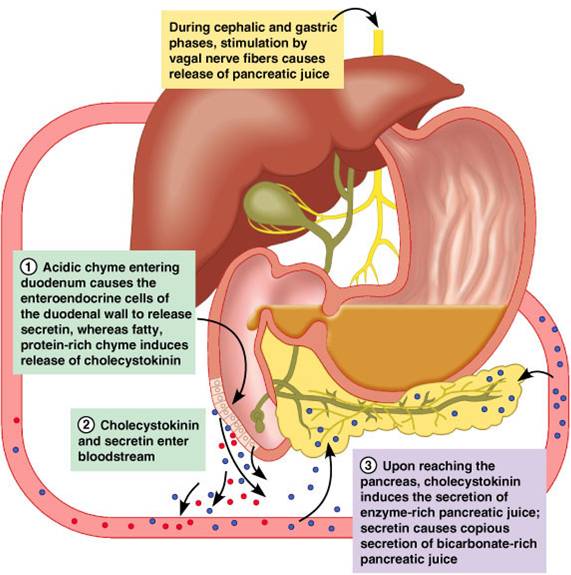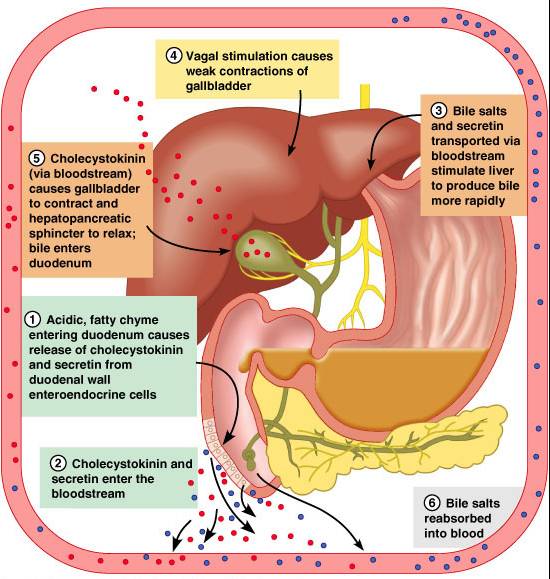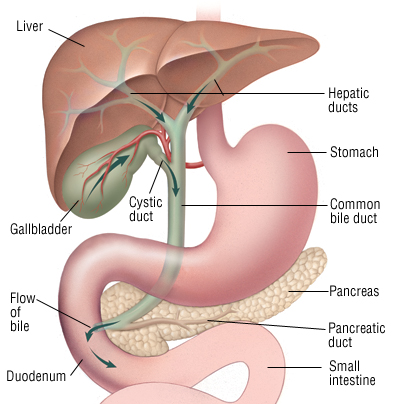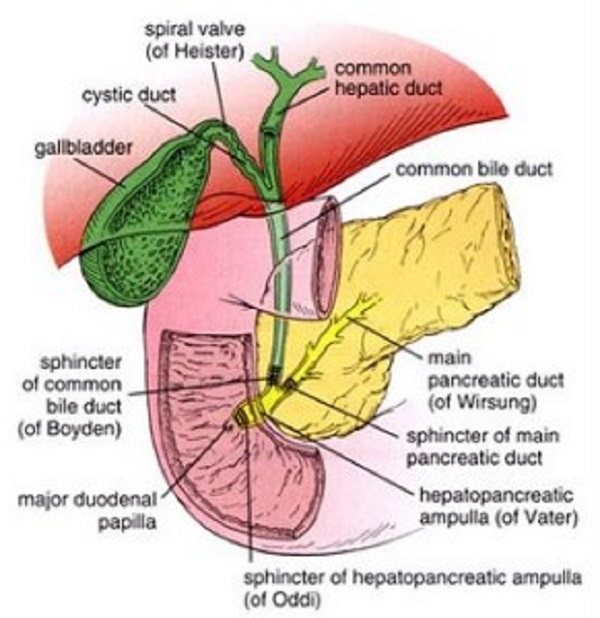MAKING SENSE OF FADS, TRENDS, AND MYTHS ABOUT THE GUT
There are a number of gut health trends, both in and out of mainstream medicine, that are really unproductive―and sometimes reckless. When we're unwell, we often become desperate, willing to try anything, lose our common sense, which makes it easy to be persuaded by the variety of trendy treatments out there. Take caution, though. What follows are descriptions of the most popular fads, along with why you should steer clear of them.
Hydrochloric Acid Supplements
There are supplements that claim to provide your stomach's missing hydrochloric acid in pill form. While these are well-intentioned, there are two problems with them.
First, they are not helping your stomach create hydrochloric acid on its own.
Second, and more important, the manufacturers of these supplements do not realize that your stomach's hydrochloric acid is not composed of just one chemical. While science has not yet discovered this, your stomach houses a complex blend of seven different acids. In approximately one decade, this truth will start to surface in sources other than this book, Medical Medium by Anthony William.
The supplements offer only one of the seven acids that make up your stomach's digestive hydrochloric acid, so they're a very incomplete solution.
Even worse, they can hinder your stomach's rebuilding of its digestive fluids by creating a chemical imbalance that overwhelmingly favors just one of the seven acids in the blend. Until this is properly researched and understood, hydrochloric acid supplements are not a good option.
These supplements are unlikely to do you any great harm. However, you're tremendously better off drinking a glass of celery juice daily. It is only with celery that you'll fully restore your stomach's store of hydrochloric acid and reclaim your gut health. And remember to drink enough plain water on time, following the Water Cure Protocol Formula, for your current body weight, daily.
Sodium Bicarbonate and Candida
A lot of people championing sodium bicarbonate―aka baking soda―as a treatment. They believe the culprit behind gut problems is Candida, based on the longtime trend of Candida diagnoses. They figure that sodium bicarbonate, which is heavily alkaline, will somehow stop Candida . . . which they believe thrives in an acidic environment.
Nearly every link in this chain of reasoning is wrong. The one exception is that, yes, many bugs do like an acidic environment. However, Candida is very seldom the cause of gut health issues. When your gut is dysfunctional as a result of heavy metals, you can develop infections from a number of sources, including Candida. But Candida is merely a side effect; and typically not a serious one.
In fact, the worst effects that are likely to result from a high level of Candida are irritated portions of your intestinal and/or colon linings forming calluses, which mildly hinder food nutrients absorption. In almost all cases, that is as bad as Candida gets. (See Chapter 9)
Sodium bicarbonate is ineffective against Candida anyway. More broadly, sodium bicarbonate does nothing to help your gut. On the contrary, it is abrasive and will only create an imbalance. If you take a large dosage of sodium bicarbonate orally, any combination of the following is likely to happen in your body:

• Gastric spasms, i.e., a twisting and tightening of your intestinal tract and colon.
• A homeostasis crisis for your body, which must strain mightily to reestablish balance after so much alkaline is abruptly dumped into it.
• A toxic crisis for your body, because while sodium bicarbonate is perfectly safe in small amounts, past a certain level it becomes an irritant to your stomach and intestinal tract. Do you know the safe amount? In some cases, this causes diarrhea, vomiting, severe bloating, and/or other discomfort.
• A worsening of bacterial and fungal infections, because sodium bicarbonate disrupts your gut's good bacteria and so weakens your immune system.
• A worsening of your digestive issues, because sodium bicarbonate damages your hydrochloric acid and thus contributes to leaky gut syndrome. It also interferes with the absorption of food nutrients in your intestines.
There are many negatives to sodium bicarbonate as a "remedy." I have seen a lot of ignorant people struggle after using it.
Diatomaceous Earth
Another fad is trying to heal the gut by consuming diatomaceous earth, also called diatomite. This is a soft sedimentary rock that crumbles into a fine white powder. Some people believe diatomite has the ability to kill parasites and clear toxins from the gut.
However, it does not do a single useful thing for your gut. It can actually be quite dangerous for your health, if you're sensitive and have an health condition.
Diatomite clings tenaciously to the sides of your intestinal tract and colon, and severely interferes with their ability to absorp the nutrients from your digested food. On top of that, it damages your hydrochloric acid and kills good bacteria. In some cases it causes initial vomiting and diarrhea, followed by long-lasting gastric spasms and pain.
In other words, it has all the bad effects of sodium bicarbonate, only to an even worse degree. Plus it can take months to shake loose from your intestinal tract. So do not even think about taking diatomite or consuming food-based diatomaceous earth.



Gallbladder Flush
Yet another trend is trying to purge your gallbladder of gallstones and toxins by drinking various odd concoctions, such as a glass of pure olive oil, or olive oil mixed with herbs and/or lemon juice, cayenne, or maple syrup.
People believe these oil-based concoctions work because within a day after they drink one, they see what appear to be gallstones in their stool. What they do not realize is that they're seeing the oil they drink. When a large amount of oil is dumped into your body, your digestive system uses mucus to form it into little balls (sometimes in multiple colors, depending on what foods are in different parts of your intestinal tract) that can be easily expelled. This is to protect an overburdened liver.
I have run across people who have done gallbladder flushes for years, multiple times each years, and still report hundreds and hundreds of large 'gallstones.' If gallbladder flushes really worked, this would have to mean there were thousands of stones in the gallbladder―a tiny organ that could fit in the palm of your hand. In adults, the gallbladder measures approximately 7 to 10 centimetres (2.8 to 3.9 inches) in length and 4 centimetres (1.6 in) in diameter when fully distended.
Showing size of gall bladder, Picture 9⇩

It is not humanly possible for someone to produce or harbor that many gallstones. If you were to flush out a gallstone, it would probably become caught in your gallbladder's cystic duct. The normal diameter of the cystic duct is variable, ranging from 1 to 5 mm. You'd then be headed to the hospital for emergency surgery.

(After gallbladder surgery, I developed severe, chronic pain in my right side under my rib. It took 12 years to diagnose sphincter of oddi dysfunction.)
Gallstones are made up of protein, bile, and cholesterol. You do not have to choke down a pint of olive oil― and potentially create a crisis―to purge them. The best way to get rid of gallstones is to lower your consumption of dense proteins and eat a diet that emphasizes sodium-rich vegetables and fruits that contain healthy bio-acids. By incorporating more spinach, kale, radishes, mustard greens, celery, lemons, oranges, grapefruit, ad limes into your meals―and by drinking a glass of lemon water every morning and every evening―you can start the stone-dissolving process.
One safe and amazingly effective option for dissolving gallbladder stones and restoring the liver is to juice a handful of fresh, raw asparagus along with whatever other juice ingredients you like.

The best way to prevent new gallstones from forming is to follow the advice in this chapter fro creating an maintaining a healthy gut.
Fermented Foods
There are a number of gut health trends, both in and out of mainstream medicine, that are really unproductive―and sometimes reckless. When we're unwell, we often become desperate, willing to try anything, lose our common sense, which makes it easy to be persuaded by the variety of trendy treatments out there. Take caution, though. What follows are descriptions of the most popular fads, along with why you should steer clear of them.
Hydrochloric Acid Supplements
There are supplements that claim to provide your stomach's missing hydrochloric acid in pill form. While these are well-intentioned, there are two problems with them.
First, they are not helping your stomach create hydrochloric acid on its own.
Second, and more important, the manufacturers of these supplements do not realize that your stomach's hydrochloric acid is not composed of just one chemical. While science has not yet discovered this, your stomach houses a complex blend of seven different acids. In approximately one decade, this truth will start to surface in sources other than this book, Medical Medium by Anthony William.
The supplements offer only one of the seven acids that make up your stomach's digestive hydrochloric acid, so they're a very incomplete solution.
Even worse, they can hinder your stomach's rebuilding of its digestive fluids by creating a chemical imbalance that overwhelmingly favors just one of the seven acids in the blend. Until this is properly researched and understood, hydrochloric acid supplements are not a good option.
These supplements are unlikely to do you any great harm. However, you're tremendously better off drinking a glass of celery juice daily. It is only with celery that you'll fully restore your stomach's store of hydrochloric acid and reclaim your gut health. And remember to drink enough plain water on time, following the Water Cure Protocol Formula, for your current body weight, daily.
Sodium Bicarbonate and Candida
A lot of people championing sodium bicarbonate―aka baking soda―as a treatment. They believe the culprit behind gut problems is Candida, based on the longtime trend of Candida diagnoses. They figure that sodium bicarbonate, which is heavily alkaline, will somehow stop Candida . . . which they believe thrives in an acidic environment.
Nearly every link in this chain of reasoning is wrong. The one exception is that, yes, many bugs do like an acidic environment. However, Candida is very seldom the cause of gut health issues. When your gut is dysfunctional as a result of heavy metals, you can develop infections from a number of sources, including Candida. But Candida is merely a side effect; and typically not a serious one.
In fact, the worst effects that are likely to result from a high level of Candida are irritated portions of your intestinal and/or colon linings forming calluses, which mildly hinder food nutrients absorption. In almost all cases, that is as bad as Candida gets. (See Chapter 9)
Sodium bicarbonate is ineffective against Candida anyway. More broadly, sodium bicarbonate does nothing to help your gut. On the contrary, it is abrasive and will only create an imbalance. If you take a large dosage of sodium bicarbonate orally, any combination of the following is likely to happen in your body:

• Gastric spasms, i.e., a twisting and tightening of your intestinal tract and colon.
• A homeostasis crisis for your body, which must strain mightily to reestablish balance after so much alkaline is abruptly dumped into it.
• A toxic crisis for your body, because while sodium bicarbonate is perfectly safe in small amounts, past a certain level it becomes an irritant to your stomach and intestinal tract. Do you know the safe amount? In some cases, this causes diarrhea, vomiting, severe bloating, and/or other discomfort.
• A worsening of bacterial and fungal infections, because sodium bicarbonate disrupts your gut's good bacteria and so weakens your immune system.
• A worsening of your digestive issues, because sodium bicarbonate damages your hydrochloric acid and thus contributes to leaky gut syndrome. It also interferes with the absorption of food nutrients in your intestines.
There are many negatives to sodium bicarbonate as a "remedy." I have seen a lot of ignorant people struggle after using it.
Diatomaceous Earth
Another fad is trying to heal the gut by consuming diatomaceous earth, also called diatomite. This is a soft sedimentary rock that crumbles into a fine white powder. Some people believe diatomite has the ability to kill parasites and clear toxins from the gut.
However, it does not do a single useful thing for your gut. It can actually be quite dangerous for your health, if you're sensitive and have an health condition.
Diatomite clings tenaciously to the sides of your intestinal tract and colon, and severely interferes with their ability to absorp the nutrients from your digested food. On top of that, it damages your hydrochloric acid and kills good bacteria. In some cases it causes initial vomiting and diarrhea, followed by long-lasting gastric spasms and pain.
In other words, it has all the bad effects of sodium bicarbonate, only to an even worse degree. Plus it can take months to shake loose from your intestinal tract. So do not even think about taking diatomite or consuming food-based diatomaceous earth.



Gallbladder Flush
Yet another trend is trying to purge your gallbladder of gallstones and toxins by drinking various odd concoctions, such as a glass of pure olive oil, or olive oil mixed with herbs and/or lemon juice, cayenne, or maple syrup.
People believe these oil-based concoctions work because within a day after they drink one, they see what appear to be gallstones in their stool. What they do not realize is that they're seeing the oil they drink. When a large amount of oil is dumped into your body, your digestive system uses mucus to form it into little balls (sometimes in multiple colors, depending on what foods are in different parts of your intestinal tract) that can be easily expelled. This is to protect an overburdened liver.
I have run across people who have done gallbladder flushes for years, multiple times each years, and still report hundreds and hundreds of large 'gallstones.' If gallbladder flushes really worked, this would have to mean there were thousands of stones in the gallbladder―a tiny organ that could fit in the palm of your hand. In adults, the gallbladder measures approximately 7 to 10 centimetres (2.8 to 3.9 inches) in length and 4 centimetres (1.6 in) in diameter when fully distended.
Showing size of gall bladder, Picture 9⇩

It is not humanly possible for someone to produce or harbor that many gallstones. If you were to flush out a gallstone, it would probably become caught in your gallbladder's cystic duct. The normal diameter of the cystic duct is variable, ranging from 1 to 5 mm. You'd then be headed to the hospital for emergency surgery.

(After gallbladder surgery, I developed severe, chronic pain in my right side under my rib. It took 12 years to diagnose sphincter of oddi dysfunction.)
Gallstones are made up of protein, bile, and cholesterol. You do not have to choke down a pint of olive oil― and potentially create a crisis―to purge them. The best way to get rid of gallstones is to lower your consumption of dense proteins and eat a diet that emphasizes sodium-rich vegetables and fruits that contain healthy bio-acids. By incorporating more spinach, kale, radishes, mustard greens, celery, lemons, oranges, grapefruit, ad limes into your meals―and by drinking a glass of lemon water every morning and every evening―you can start the stone-dissolving process.
One safe and amazingly effective option for dissolving gallbladder stones and restoring the liver is to juice a handful of fresh, raw asparagus along with whatever other juice ingredients you like.
The best way to prevent new gallstones from forming is to follow the advice in this chapter fro creating an maintaining a healthy gut.
Fermented Foods

No comments:
Post a Comment